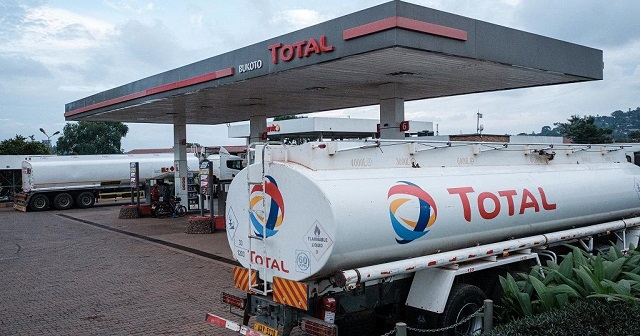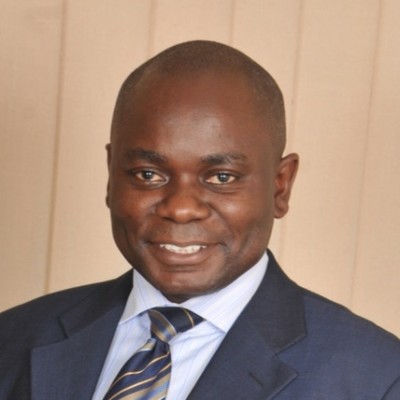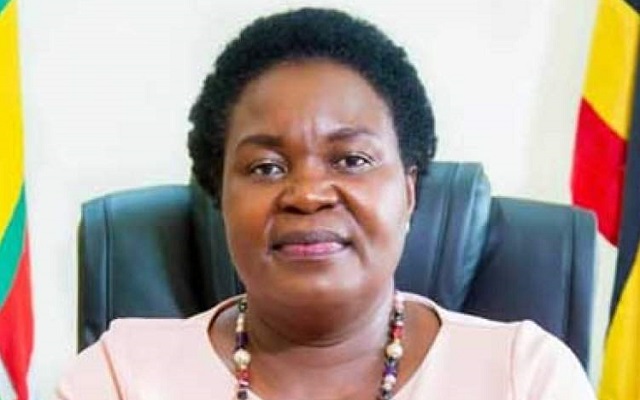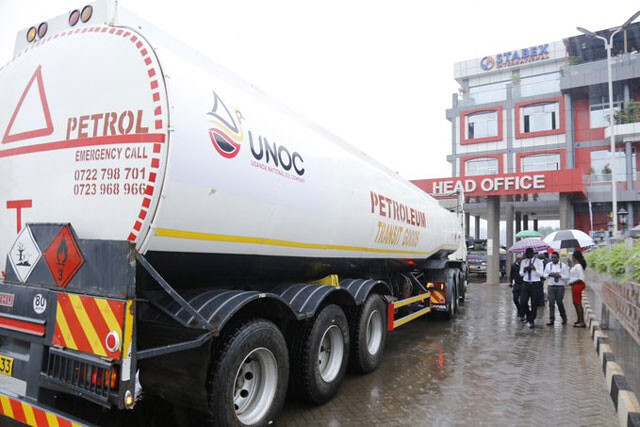By Isaac Khisa
Kampala, (UG): The decision by the government of Uganda to directly enter the oil importation and cut out middle players has blown a cloud of uncertainty in the US$2 billion business that is the heartbeat of the country.
President Yoweri Museveni, in a letter posted on X formally Twitter, on Nov 05, said the move was designed to lock out “middlemen” and lower pump prices in Uganda. He said there is no reason why Ugandan oil marketing companies were buying petroleum products from middlemen in Kenya.
“A whole country buying from middlemen in Kenya or anywhere else! Amazing but true,” he tweeted, adding; “Why not buy from the refineries abroad and transport through Kenya and Tanzania, cutting out the cost created by middlemen?”
According to Mr Museveni, Uganda has been paying US$35 more to the middlemen on every imported ton of diesel, US$36 on petrol and US$35 on Kerosene.
The President also appeared to imply that UNOC and Vitol’s new roles are stop-gap measures as the country looks forward to its proposed new petroleum refinery in a few years that will guarantee inland East Africans of competitive petroleum products, free of distributions caused by middlemen.
“The whole of Uganda, North- Western Tanzania, Rwanda, Burundi, Western Kenya, South Sudan and Eastern DRC, will benefit,” he said.
Museveni was defending a decision announced by the Energy Minister, Ruth Nankabirwa, on Oct.31 that the government has decided to enhance its involvement in ensuring the security of the supply of petroleum products into the country by mandating its company; the Uganda National Oil Company (UNOC) to become the single source, importer and supplier of petroleum products in the country.
Additionally, she said UNOC has already signed a five-year contract with Vitol Bahrain E.C. to be its sole supplier of petroleum products. This has effectively placed a double monopoly at the centre of the country’s petroleum products supply chain.
Vitol Bahrain E.C is an affiliate of Vitol, which is the world’s largest independent oil trader and major player in the liquefied natural gas and power markets. Their direct entry into the Ugandan market should be exciting under normal business circumstances.
Until now, Vitol’s hand in the Ugandan market has been indirectly felt through the operations of its affiliated company; Vivo Energy Uganda and the operations of its terminal; VTTI Kenya, which is the only privately owned terminal that ties into the Kenya Pipeline in Mombasa. This pipeline gives Vitol access to the Ugandan market and other landlocked countries further west. The VTTI terminal is one of the largest and most modern facilities in East Africa.
Vitol’s entry has instead created uncertainty into the market with concerns about the government’s hastiness in implementation of the move without parliamentary involvement and without an enabling law in place.
Several firms including HEK International, an agent of Maersk Line Ltd and E3 Energy interested in supplying petroleum products directly from the refineries have opposed the government’s plans to award the contract to Vitol, arguing that it would create a monopoly. They caution that this plan would amount to putting all one’s eggs in one basket.
“We don’t support the decision to create a monopoly…we find that we can compete favourably,” Rogers Kananura, the technical advisor to Maersk Line Ltd on Nov.08 told the Environment and Natural Resources Committee of Parliament which is scrutinizing the Energy Bill.
“We don’t find the arrangement to provide for suppliers necessary because if UNOC engaged with multiple suppliers, the price of fuel would be cheap,” Kananura said.
He said Maersk Line Ltd has the required financial muscle to source petroleum products into Uganda if given the opportunity.
Mike Mukula, the director at Mahathi Infra (U) which has been transporting oil by tanker ships via Lake Victoria from Kisumu to Kampala, warned that the change of policy to create a UNOC monopoly will hurt investors that have put up infrastructure in the fuel importation business.
However, Attorney General, Kiryowa Kiwanuka, defended the move stating the partnership with Vitol is to guarantee finances for the purchase of petroleum products.
Vitol’s entry also appears to have been a knee-jerk reaction to a recent decision by the Kenyan government to change its petroleum import arrangements.
In April this year, the Kenyan government changed its petroleum products import system by replacing the Open Tender System involving several private entities with a government-to-government importation arrangement involving only the United Arab Emirates and Saudi Arabia.

The unilateral decision by Kenya was prompted by importation challenges attributed to dollar scarcity that Kenya was facing which has consistently caused shortages. Players in the petroleum import business favoured the Open Tender System in Kenya and its relatively normal supplies.
Nankabirwa said, however, it exposed Uganda to supply vulnerabilities where the Ugandan oil marketing companies were considered secondary whenever there were supply disruptions.
Kenya oil marketers traditionally allocate 65% of their fuel imports to the local market and 35% to the transit market which includes Uganda and Rwanda.
“These vulnerabilities posed additional challenges, resulting in Uganda receiving relatively costly products and ultimately impacting the retail pump prices,” she said.
Nankabirwa said with the amendment of the Petroleum Supply Act, the energy ministry shall maintain its overall responsibility of regulating the importation of petroleum products. She said the Energy Ministry will closely work with the office of the Attorney General to formulate statutory instruments to operationalise aspects of the law as appropriate.
She said while UNOC will be responsible for sourcing and supplying petroleum products to the licensed Oil Marketing Companies (OMCs) involved in importing the products to Uganda, OMCs will continue selling the products to consumers through their commercial arrangements and the retail fuel pumps.
Nankabirwa said Vitol Bahrain E.C. will be financing the business by providing a working capital facility backed by its global balance sheet and working with UNOC to ensure competitive pricing of petroleum products.
“To guarantee the security of supply, the partnership has ensured that there will be buffer stocks in Uganda and Tanzania to be called upon should there be supply disruptions to the country,” she said.
“The partner has also committed to finance the construction of additional capacity in partnership with UNOC of 320 million litres at Namwambula, Mpigi.”
She noted that the government remains in active dialogue with the Kenyan government for a seamless implementation of the policy change.
Nankabirwa said the new mandate of UNOC necessitated the amendment of the Petroleum Supply Act, 2003 through the Petroleum Supply (Amendment) Bill, 2023, which has since been presented to parliament for debate and approval.
The new law will mandate UNOC to import petroleum products for the Ugandan market, authorize the minister, with the approval of the Cabinet, to nominate any other person to import petroleum products for the Ugandan market, and hopefully improve security of supply of petroleum products for the country.
In addition, the government hopes that the proposed law will contribute to the reduction of the pump prices by eliminating unwarranted transactions in the supply chain as well as additional revenue to UNOC where new revenues will be earned through participation in the importation supply chain and ultimately support financing other infrastructure projects where UNOC holds interest on behalf of the government.
Experts react
Trade and investment policy experts have also expressed skepticism about the government’s plan to replace Kenya and Tanzania with Vitol Bahrain E.C. as the exclusive supplier of fuel to the Uganda National Oil Company Limited (UNOC) claiming that this move is unlikely to directly impact consumer pump prices.
This is because unlike Kenya or Tanzania, which benefit from importing for the entire East African region and negotiating lower prices through bulk purchases, Uganda may struggle to secure similar cost advantages.
“So, eventually we might see fuel prices getting higher but literally don’t expect any change (for the consumers in terms of pump prices),” Dr. Fred Muhumuza, an Economist and lecturer at Makerere University.

Muhumuza, however, noted that if the initiative is successful, then the government could capture some revenues that were previously directed to Kenya, Tanzania, and their associated companies.
Other experts, such as Peninah Mbabazi, a trade Policy Analyst at SEATINI Uganda says the new plan contravenes the government’s liberalisation agenda that was initiated and implemented in the 1990’s resulting into the massive private sector investment.
She said the government’s position to monopolise the fuel industry, not only contravenes its already existing liberalisation policy but also poses more challenges to the already existing oligopolistic market.
“With the past experiences that Uganda has faced in regards to controlling or maintaining sustainable fuel reserves as envisioned in the law (Petroleum Supply Act Sect 26) it remains uncertain how Uganda is going to safeguard the market from fuel shortages as experienced from the violence from the recently concluded Kenya elections that disrupted the supply chain,” she said.
“This stands to challenge and undermine the government’s stance on promoting fair competition within the market,” she says.

Mbabazi told The Independent the government’s new initiative can only be used under scenarios where the country or government is facing a fuel shortage emergency.
“There is a philosophical shift at play: does this move signify government’s shift toward a mixed economy, involving a level of nationalisation, or is it simply about bolstering the country’s resource portfolio while retaining its liberal economic policies?” posed Henry Kimera, a team lead manager at the Consumer Centre (CONSENT), a consumer advocacy organisation.
Kimera in an interview reveals that it is difficult to comprehend the benefits that the proposed fuel import arrangements will have on consumers. This, he says, is because a significant portion of the high fuel prices is attributed to taxes.
Kimera said another concern revolves around the competence of the new managers taking charge of this venture. He said government’s previous exit from the business sphere was predicated upon the assumption that private sector management would be more efficient.
“Will Uganda’s new breed of managers be able to mitigate corruption and steer the fuel sector away from the problems encountered by some oil-rich countries like Nigeria? These are some questions that we are now grappling with,” he says.
Uganda annually imports a substantial 2.5 billion litres of petroleum products, amounting to approximately US$2 billion in value. However, the government levies taxes that represent a third of the actual market prices of petroleum products besides a cocktail of other taxes.

Fuel prices in Kampala and other towns have witnessed a significant surge over the past two years, reaching record levels. The price of a litre of petrol has experienced a notable increase, rising from Shs 4,150 in some areas to Shs 5,600. Similarly, diesel prices have seen an upward trend, climbing from Shs 3,710 to Shs 4,800 per litre.
Current situation
Currently, importation is done independently by the licensed Ugandan Oil Marketing Companies through the importation entities and structures in Kenya and Tanzania.
More than 90% of petroleum products sold in Uganda are imported through the Mombasa port in Kenya and the rest through the Dar-es-Salaam port in Tanzania and the big private licensed oil marketing companies include Total Energies and Vivo Energy.
Under the existing importation structures, the Ugandan OMCs access their petroleum products import allocations through their affiliated Kenyan OMCs registered and participating in Kenyan and Tanzanian import structures.
Joining a failing model?
By giving UNOC its new mandate, the government is joining a list of countries with National Oil Companies (NOCs) that have most failed.
According to the International Monetary Fund, the era of NOCs dates back to the 1920s when Yacimientos Petroliferos Fiscales (YPF) was founded in Argentina. The major increase in numbers of NOCs, however, occurred in the 1970s, triggered by a worldwide tide of nationalism and enthusiasm for state intervention and ownership.
The Organization of Petroleum Exporting Countries (OPEC) was formed at that time, and its members were stunningly successful in wresting control of international oil markets from the international oil companies, and in dramatically increasing oil prices.
Today, there are dozens of NOCS found in almost all oil-exporting and many oil-importing developing countries. In Africa, about 42 countries including Uganda, Kenya, Ghana and Algeria have NOCs in their statutory books, according to a study by the African Development Bank. The companies are of different sizes, operational levels and they focus on different areas of business.
The study notes that though a significant number of NOCs collect the largest revenue shares for their countries, others carry big debt burdens or have been privatized as a result of inefficiencies, government interference and corruption.
For instance, after more than half a century in existence as a government monopoly and a perennially inefficient and loss making entity, Nigeria’s state-owned oil company, Nigerian National Petroleum Company (NNPC) was privatised last year.
The government claimed that for years, the oil company had been plagued with bribery scandals and financial transparency issues, as well as other question marks surrounding its dual role as a player and regulator to other firms in the industry.
However, the NNPC, which is now considering an Initial Public Offering in 2024, has remained inefficient in the supply of petroleum products to the continent’s most populous nation due to monopoly.
In neighbouring Kenya, the National Oil Corporation of Kenya (NOCK), incorporated in 1981 to secure the government’s interest in the oil business, was in December, last year, declared technically bankrupt, and its survival depends on the government, bankers, and creditors.
In a report to Parliament, Auditor-General Nancy Gathungu stated that the state corporation’s losses increased to Kshs 4.03 billion (US$26.4million) in the fiscal year ending June 2021, up from Kshs 3.06 billion (US$19.8million) the previous year.
It lost Kshs 969.8 million (US$ 6.4million) during the period under review, up from Kshs 494.5 million (US$3.27million)) in the previous fiscal year, casting doubt on its viability.
The report indicated that National Oil’s liabilities of Kshs 8.95 billion (US$590million) exceeded the current assets of Kshs 2.65 billion (US$175.2million), thus worsening its financial situation.
The Kenyan Cabinet has since approved the proposal to split NOCK into three subsidiaries as the government moves to restructure the ailing parastatal. Under the proposed turnaround strategy, NOCK will be split into NOC Upstream Limited, NOC Downstream Limited, and NOC Trading Limited.
In Angola, the state energy company, Sonangol, has recorded losses for more than a decade, with US$3billion losses recorded in 2021 owing to effects of Covid-19 induced lockdowns.
Currently, plans are underway by the Angolan government to conclude privatizing the second largest oil producer in Africa by 2026. The sale of government shares in the company began in 2021, when the state placed 30% of its stake on offer.
The Angolan government said Sonangol’s privatization would “create a lean and internationally competitive oil and gas operator.”
In South Africa, PetroSA has reported a string of losses, including a record US $1.2 billion in 2019, and experienced a high turnover of executives through the same period.
Any possible alternative?
Mbabazi says the government should prioritise conducting an assessment that will help establish the failures of the regulatory framework that it is trying to address.
“The proposed intervention doesn’t necessarily address the challenges faced with global influences on fuel prices,” she said.
She says rather than proposing a monopoly, the government should establish a regulatory body as envisioned within the Act, taking an example of the Uganda Electricity Regulatory Authority rather than the government disrupting the market as the sole distributor of fuel to protect investor confidence within the sector.
She said the government should extensively conduct market assessment and stakeholder consultation to enable a holistic policy and regulatory framework that will not disrupt the market but rather promote safe guards of consumers and investment climate across the country.
Do you have a story or an opinion to share? Email us on: dailyexpressug@gmail.com Or follow the Daily Express on X Platform or WhatsApp for the latest updates.

